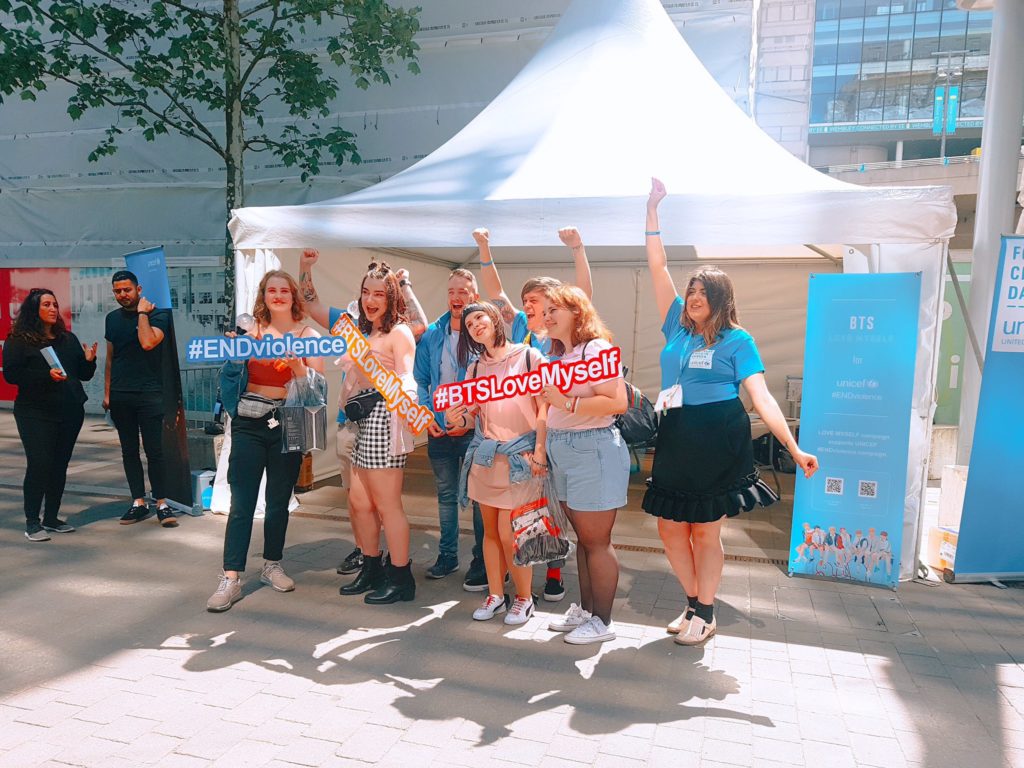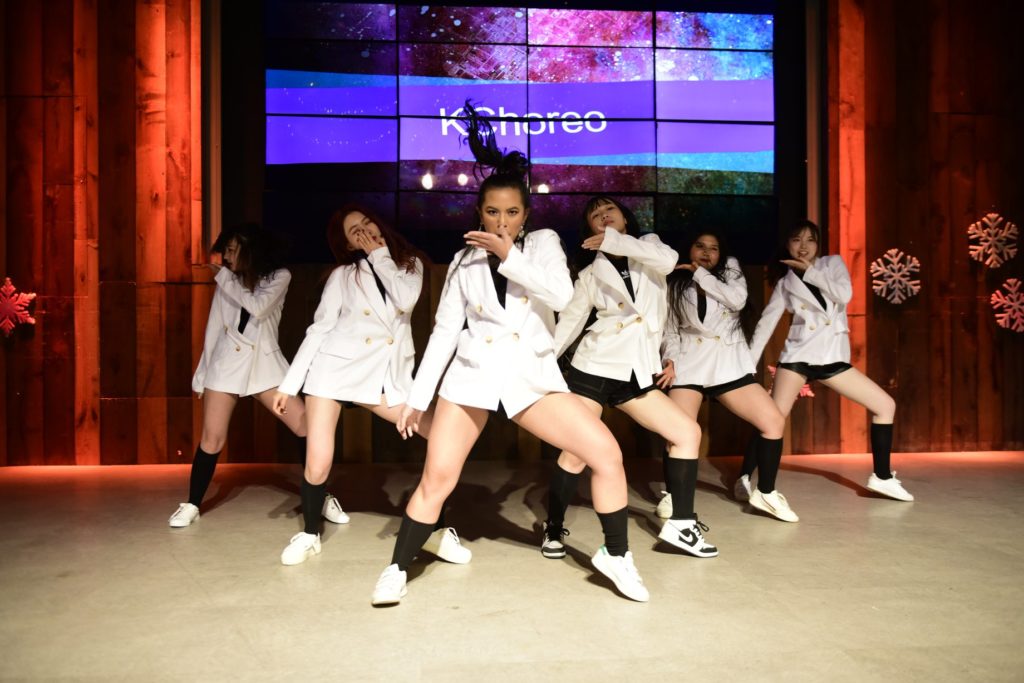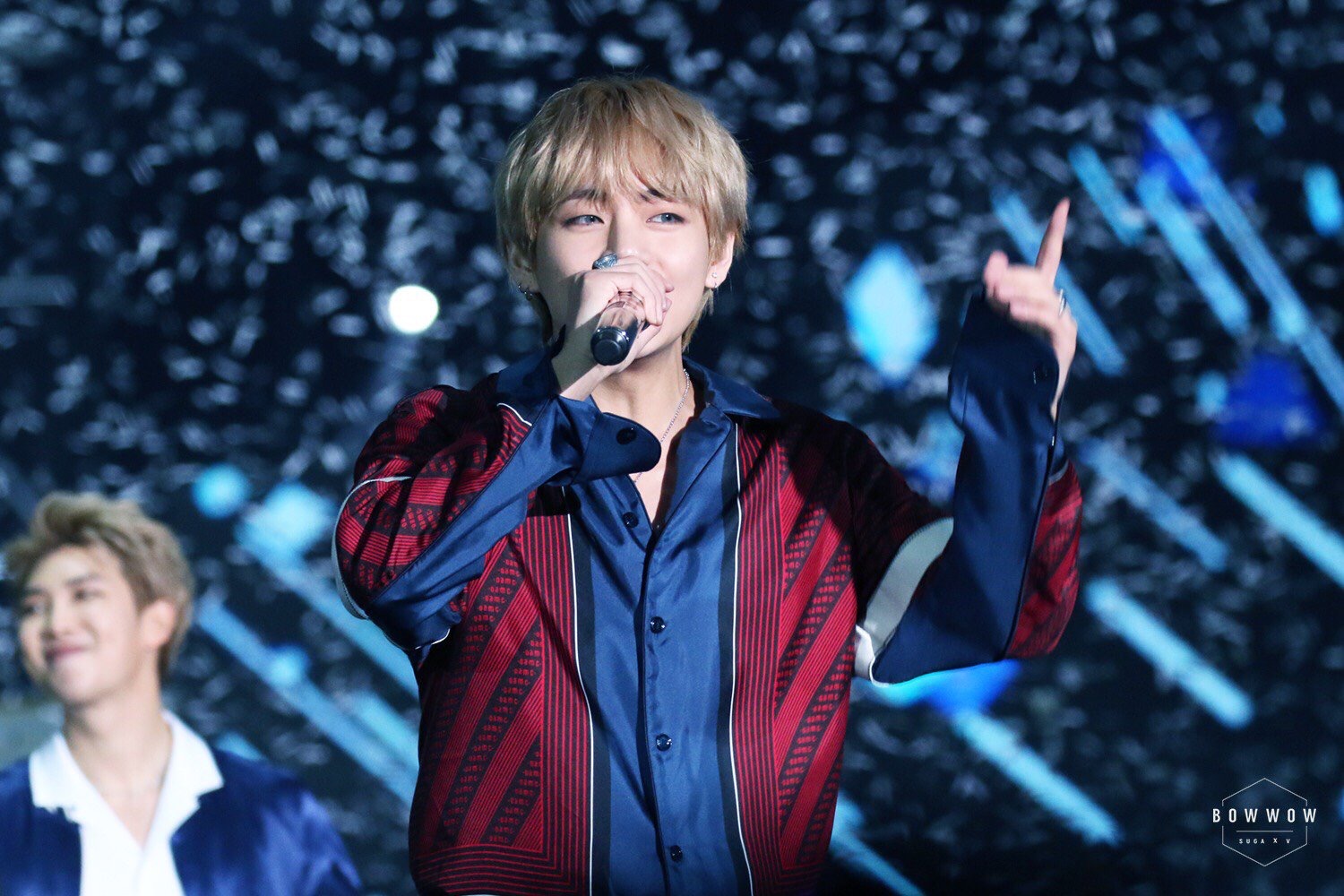As K-pop has achieved phenomenal success, how does the UK audience understand the art form from East Asia?
Colette Balmain spent about 12 hours watching Bang Bang Con, a two-day online show of a popular Korean boy band BTS. The show was a collection of previous concerts and fan meetings, which entertained many fans of BTS, also known as ARMYs.
“Even if some of the concerts are quite old, it(online concert) made them quite recent,” said Colette, a K-pop fan and a researcher of Korean culture. She is one of the 2.24 million viewers of this most-watched online stream.
As a “soldier” of ARMYs, Colette had been chatting with friends on Twitter and online forum while watching the concert. She said Bang Bang Con cheered her up during the lockdown.
“BTS connects us together and we become coproducers through our discussions and engagements. This is so important at a time when we are physically disconnected from our families and loved ones.”
It is hard to estimate the scale of ARMYs, but it could be millions. If you still don’t know how popular the boy band is, have a look at their quirky show in Wembley Stadium last year. They performed 24 songs through 150 minutes with 60,000 fans chanting and screaming. Joining U2, Beyonce and Adele, BTS became the first Korean band performing on the largest stadium in the UK.
The fever night at the iconic arena was tip of the iceberg of the group’s global success. The art form it represents, K-pop, has been an industry worth $5 billion. Along with BTS, K-pop has swept the world and created a huge fandom, eating the markets dominated by western pop.
So, here lies the questions: How does K-pop stand out and threaten the position of western pop? How does the UK audience perceive the cultural export from the far east?
Secret weapons of K-pop
It’s 13 people dancing in perfect sync to upbeat and catchy music, intricate moves and fresh ideas. It is fan service like no other. It’s a wholly immersive world and you get as much as you give.
an informant of the K-pop survey made by Intercardiff
K-pop is not only about music, but a whole experience of catchy songs, synchronized choreography, colourful music videos and dynamic interactions with fandom.
The sound of K-pop is modelled around western pop, but it adds more flavours to itself which is not normally done by western artists.
“It(K-pop) doesn’t have the cultural baggage that we have to be certain forms of music or pop, ” said James Ballardie, a music journalist from BBC. ” It crosses a lot of genres, like heavy metal, dubstep, hip hop and all these other things.”
While western artists still believe music has to come from the garages, Korean entertainment companies have manufactured pop music following the replicable formula: music with mixed genres, slick dances displayed by pretty boys or girls, the variation of refined scenes either in concerts or music videos. From head to tail, the production of K-pop is well-planned, and undoubtedly, very expensive.
SuperM, described as ‘K-pop Avengers’, filmed their debut song at Dubai.
“When I went to my first BTS concert, it was almost like going to a musical,” said Colette Balmain. “It’s very professional.”
K-pop has created new production value and aesthetic, differentiating itself from western pop. Most importantly, it suits the appetite of Generation Z.
Listening to a (K-pop) album is a complete adventure rather than variations on a theme x12-15 times.
an informant of the K-pop survey made by Intercardiff
Another key element of K-pop’s phenomenal success is the intimate interaction between idol groups and fans. Twitter is an important channel to connect with bands. BTS’s backdoor company Big Hit Entertainment even developed a mobile app Weverse, hosting live streams of the group’s informal settings.
” It(live stream)’ll be one member sitting there, eating dinner or they’ll look at the comments and answer questions about their touring,” said Catherine Escritt, a K-pop lover and president of Cardiff University’s K-pop dance society. As a fan, Catherine said she felt nicely treated by Korean idols.
“They make it(the interaction) very personalized. I really like you and you appreciate that. We put in the time for you and you put in the time for us,” said she.
Empowerment
If you are not part of the fandom, you might think the fans of Korean boy groups are teenage girls screaming at various music venues. That is not the whole picture.
Colette said she knew a 14-year-old girl bullied at school became a fan of BTS, as the idol group empowered her to get through the tough time. A couple of informants in our survey also echoed that BTS helped them to recover from the bad mental state. Someone said BTS’s songs are not so cynical as western pop, conveying positive messages to tell people to love themselves.
In light with their Love Myself campaign, the boy band talked about depression and low self-esteem in a weekly show. Despite knowing it is a form of constructing the group’s positive image, Colette said the campaign is still an important message, especially for the young people experiencing difficulties.

“I see fans that are quite marginalized within home lives say the narrative gives them agency,” said Colette. “I think it’s really important, especially for young people to understand that however horrid things are, when they grow up, they will get better. “
If you step into the fandom, you would find strong internal bonds between members. It is not just about gossiping about idol’s beauty or diving into the ocean of consumerism to buy piles of merchandises.
As BTS topped music charts globally, the popularity of K-pop dance is growing. Many UK universities have K-pop dance societies now, exhibiting showcase events inside the campus and competing with other teams on the national stage. Most importantly, people gain confidence while being part of these interest groups.
Catherine, the president of K-pop dance society at Cardiff University, said the society is welcoming for everyone no matter if they have dance experiences. Someone initially struggled with coordinating arms and legs but improved a lot by the end of the year.
“I know a lot of people don’t like to film themselves at the beginning. And by the end they said I wanna record, let me have some space, ” said Catherine.

@cardiffstudents
Toxic sides
I still find myself liking some idol groups. It’s just that typically these groups find themselves in severely restricted contracts and it has to lead to my further disdain for the industry over the years.
an informant of the K-pop survey made by Intercardiff
The entertainment industry is always a hotbed for scandals, so is the K-pop industry. The lucrative business is driven by a set of exploitation of artists and raw talents.
“BTS had a month off last year after working for seven years. That wouldn’t happen in the west,” said Colette. “You have somebody like Justin Bieber who is not doing concerts at all. He got fed up and he just cancelled everything.”
If you were an idol in South Korea, it basically means you would give up your private life. You have to work extra-long hours and might get no paid. You are not allowed to date, let alone a formal relationship.
What is worse, you might suffer from mental health problems and even take your life because of cyberbullying and abuse from hate fans. If you are female, you might experience sexism and misogyny, which is rooted in South Korea’s socio-cultural context.

Colette said it is hard for many western fans to understand why their idols are banned from relationships. ” You are really stressed and you don’t have that relationship which pulls you out of those really bad times. I think this kind of micromanagement of idols’ private lives is very exploitative,” said she.
James Ballardie explained that Korean entertainment companies don’t want their artists to be indulgent. If they are reported with scandals and end their career, it means millions of investment into their training would drain.
Also, the companies believe their artists would be more appealing if they are available, as fans are willing to invest more into their fantasy of the idols. But that doesn’t make sense to the western audience.
“A lot of my friends always say we’re really happy when we do find out that they’re dating with people because they found someone that they trust and they love, ” said Catherine. “Shouldn’t we be happy that they’re happy?”
The toxic sides of the K-pop industry bring struggles for some fans. “I feel confused in some cases because I want to support your(idol’s) dreams. But I don’t support what your company did to you, ” said Catherine. “I know most of that money’s going to the company and not the idol. It’s very hard sometimes.”
